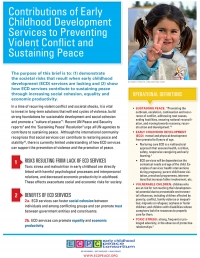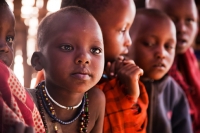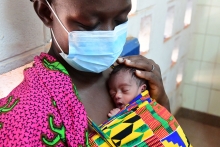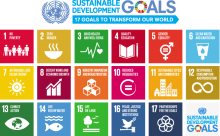Ending cyles of violence: Investing in longterm solutions
Introduction
In a time of recurring violent conflict and societal shocks, it is vital that we invest in long-term solutions that will end cycles of violence, build strong foundations for sustainable development and social cohesion and promote a “culture of peace”. Recent UN Peace reports, UN Security reports and the UN ‘Sustaining Peace’ Resolutions urge all United Nations agencies to contribute to sustaining peace. Although the international community recognizes that social services can contribute to restoring peace and stability, there is currently limited understanding of how early child development services can support the prevention of violence and the promotion of peace.
As outlined in the ECPC 2017 issue brief ”Contributions of Early Childhood Development Services to Preventing Violent Conflict and Sustaining Peace”, we need to inform policy-makers that the burden and cost of inaction is high. Specifically, there are major societal risks resulting from toxic stress and malnutrition. Early toxic stress (due to inequality, conflict, family violence, etc.) and/or malnutrition can severely harm a child’s:
-
Hormonal and stress response systems;
-
Attachment and bonding with their caregivers;
-
Psychosocial and emotional development;
-
Cognitive development, and
-
Physical health and life expectancy.
Toxic stress and malnutrition can, in turn, lead to harmful psychological processes and problematic interpersonal relations that include exposure to violence in the home and the community. Indeed, ongoing neuroscience and epigenetic research indicate that toxic stress strongly increases a child’s risk of developing:
-
Impaired stress- and emotion-regulation systems,
-
Psychiatric symptoms including post-traumatic stress disorder, depression, anxiety, aggression, violent behaviors, substance abuse and harmful relationships in adulthood.
Toxic stress and malnutrition can also lead to inadequate education and decreased economic productivity. The advancement of skills throughout the lifetime builds on the developmental foundation created in early childhood. Thus, early disadvantages affecting health or developmental capacities can accumulate over time to critically impact schooling and employment potential, ultimately resulting in decreased economic productivity and physical and mental well-being.
Consequently, the resulting major societal risks in relation to the 2030 Sustainable Development Goals (SDGs) include:
-
Exacerbated inequalities across groups and genders (hindering SDGs 4.5, 4.7, 5, 10.2, 10.3);
-
Increased crime rates (hindering SDGs 5.2, 16.1, 16.2);
-
Intergenerational cycles of violence (hindering SDGs 5.2, 16.1, 16.2);
-
Reduced gross national income (hindering SDGs 8.1, 10.1);
-
Higher unemployment rates (hindering SDGs 8.5, 8.6);
-
Intergenerational cycles of poverty (hindering SDGs 1.1, 1.2, 10.1);
-
Higher expenditure in health care, education, the criminal justice system, child protective services and public aid.
Relevant information

The purpose of this brief is to 1) demonstrate the societal risks that result when early childhood development (ECD) services are lacking and 2) show how ECD services contribute to sustaining peace through social cohesion, equality and economic productivity.
Dr. Hirokazu Yoshikawa, Courtney Sale Ross Professor of Globalization and Education and university professor at New York University, joins host Yale professor, Rima Salah. Dr. Hirokazu Yoshikawa speaks about the current state of affairs with regard to early childhood development research, implementation of programs, and the need to shift our focus to developing countries.
Topics & initiatives
|
|
|
|
|
|
JOIN THE CONVERSATION
For breaking news and to stay connected, follow us on social media. Sign up to get our E-News delivered straight to your inbox.






